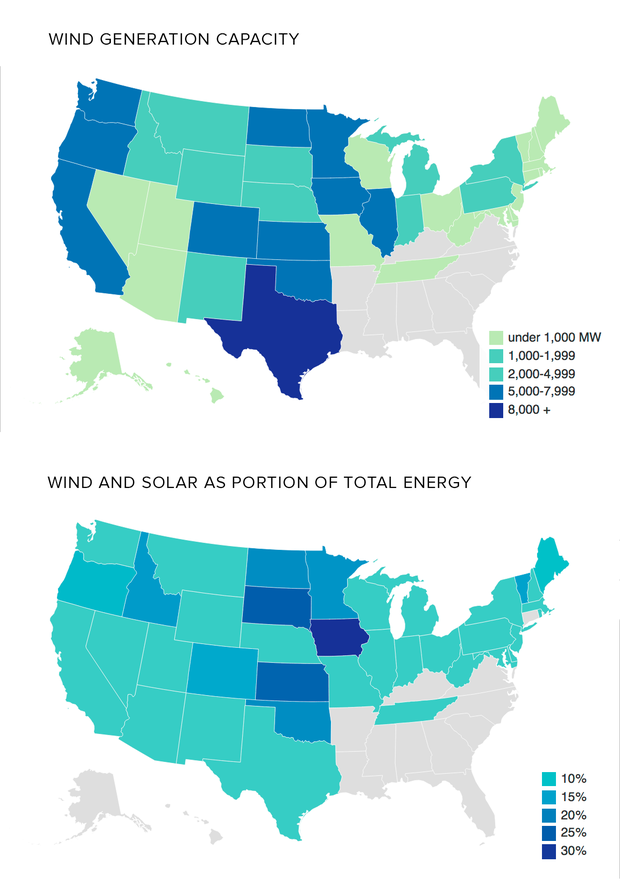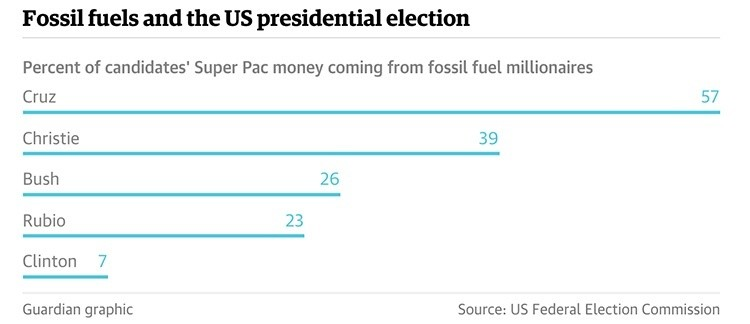By Alexander Casendino
On Feb. 26th, 2015, Senator Jim Inhofe of Oklahoma, a climate change skeptic, decided to put an end to the global warming debate once and for all using a peculiar prop to convey his message on the Senate floor: a snowball. According to Inhofe, it was simply too cold outside for man-made global warming to exist; heck, he could make a snowball! And to all the climate change scientists and renewable energy experts, Senator Inhofe had just two words for them as he lobbed the snowball: “Catch this.”
Oddly enough for Senator Jim Inhofe and Republican leaders, there is rising support for renewable energy within certain conservative circles that has split the party in half; according to the Pew Research Center, 45% of Republicans say the more important priority should be developing alternative energy sources versus fossil fuels, while 44% favor the status quo of supporting oil, coal and natural gas production. Despite Republican leaders’ resistance to recognizing anthropogenic climate change, the incentives of the free market and the interests of national security have unleashed a new conservative wave of green energy activism.
Economics 101
The GOP, long a staunch defender of the fossil fuel industry, is now facing rising pressure from market forces to support alternative energy sources primarily due to the dropping prices of clean energy technologies. A Nov. 2016 report from the U.S. Department of Energy analyzed the costs of five different technologies, including wind, residential solar, and utility-scale solar, and found that costs have fallen between 41% and 94% from 2008 to 2015.

Additionally, the number of those employed in renewable industries has skyrocketed and continues to grow; the solar industry employs more than 260,000 full-time employees and the wind energy industry employs over 102,000, far more than the 160,000 jobs that the coal industry supports. And according to the the Solar Foundation’s National Solar Jobs Census 2015, solar sector jobs have increased 123% since 2010. Meanwhile, the coal industry is facing automation and competition from cheap natural gas that has led to layoffs and coal plant shutdowns.
Conservative leaders across the country are adapting to these new market trends. Under a Republican Governor Patrick McCrory, the solar industry in North Carolina has drastically expanded, ranking the state second in total installed solar capacity behind California. Texas, a state with historic ties to oil and natural gas, is now the state that generates the largest quantity of renewable energy in wind and solar for its citizens. Given the dropping prices of technology and the expansion of job opportunities in wind and solar, GOP leaders are facing greater difficulty resisting renewable industries’ economic success.
 Source: Environment America/Frontier Group
Source: Environment America/Frontier Group
National Insecurity
Reinforcing national security through energy independence remains a top priority for the GOP; as President George W. Bush stated in his 2006 State of the Union address, “America is addicted to oil, which is often imported from unstable parts of the world.” More than a decade later, Bush’s remarks still deserve credit; according to the CNA Military Advisory Board, a nonprofit research and analysis organization based in Virginia, the United States’ reliance on foreign sources of oil constitute a “national vulnerability” for our nation’s economy and armed forces, both of which are deeply reliant on fossil fuels. Given the volatility of global oil prices and their impacts upon America’s security, groups such as the Young Conservatives for Energy Reform have pushed for reducing fossil fuel subsidies and greater energy independence through renewable energy sources.
Given America’s dependency on fossil fuels, the United States, traditionally the primary nation responsible for maintaining global stability through its worldwide diplomatic and military presence, has historically been at the mercy of foreign governments who have provoked global economic instability thanks to their ownership of large oil reserves. The economic crisis that followed the 1973 oil embargo levelled by the Organization for Petroleum Exporting Countries (OPEC) demonstrated the weaknesses of America’s dependency upon foreign oil imports. OPEC member countries play a dominant role in the global energy market as the producers of roughly 40% of the world’s crude oil. The GOP’s reputation of supporting national security and defense spending is simultaneously tested by its traditional ties to fossil fuels, yet conservative supporters of green energy are exploiting this relationship by deploying the issue of national security as one of the primary reasons to support renewables.
Fossil Fuel Funders
Large donors connected to the fossil fuel industry, such as the Koch brothers and the Wilks family, remain immensely influential within the Republican party circles and pose obstacles to clean energy. According to the Center for Responsive Politics, Republican candidates running for office in 2016 received $55.3 million in campaign contributions from oil and gas companies; Democrats received just $7.5 million. The oil and gas industry, threatened by the expanding sector of clean renewable energy, places great political pressure on Republican leaders to maintain fossil fuel subsidies and cut regulations on emissions-heavy industries.

Wealthy donors provided substantial funds to several Republican candidates’ Super PACs in the 2016 GOP Primary; Senator Ted Cruz’s Super PAC alone received over $25 million from wealthy fossil fuel interests. Despite mounting public pressure and conservatives’ split over renewables and traditional fuel sources, those who have a stake in the fossil fuel business will continue to protect themselves from government regulation and clean energy proposals from liberals and conservatives alike.
A Fork in the Road
GOP leaders have been hesitant to recognize the trends that are causing the uptick in conservative support for renewable energy sources. The power of the market and issues of national security have pressured the Republican party into selecting two different options. On the one hand, the GOP can lobby for the status quo, attach itself to the shrinking fossil fuel industry, and delay clean energy programs. On the other hand, the GOP can accept the economic and security benefits of renewables. For now and the distant future, the Republican party is likely to pursue a strategy of balancing the two, satisfying the fossil fuel donors while also recognizing the economic and security benefits of developing a profitable renewable energy sector for American workers.
Featured Image Source: Axios






Be First to Comment